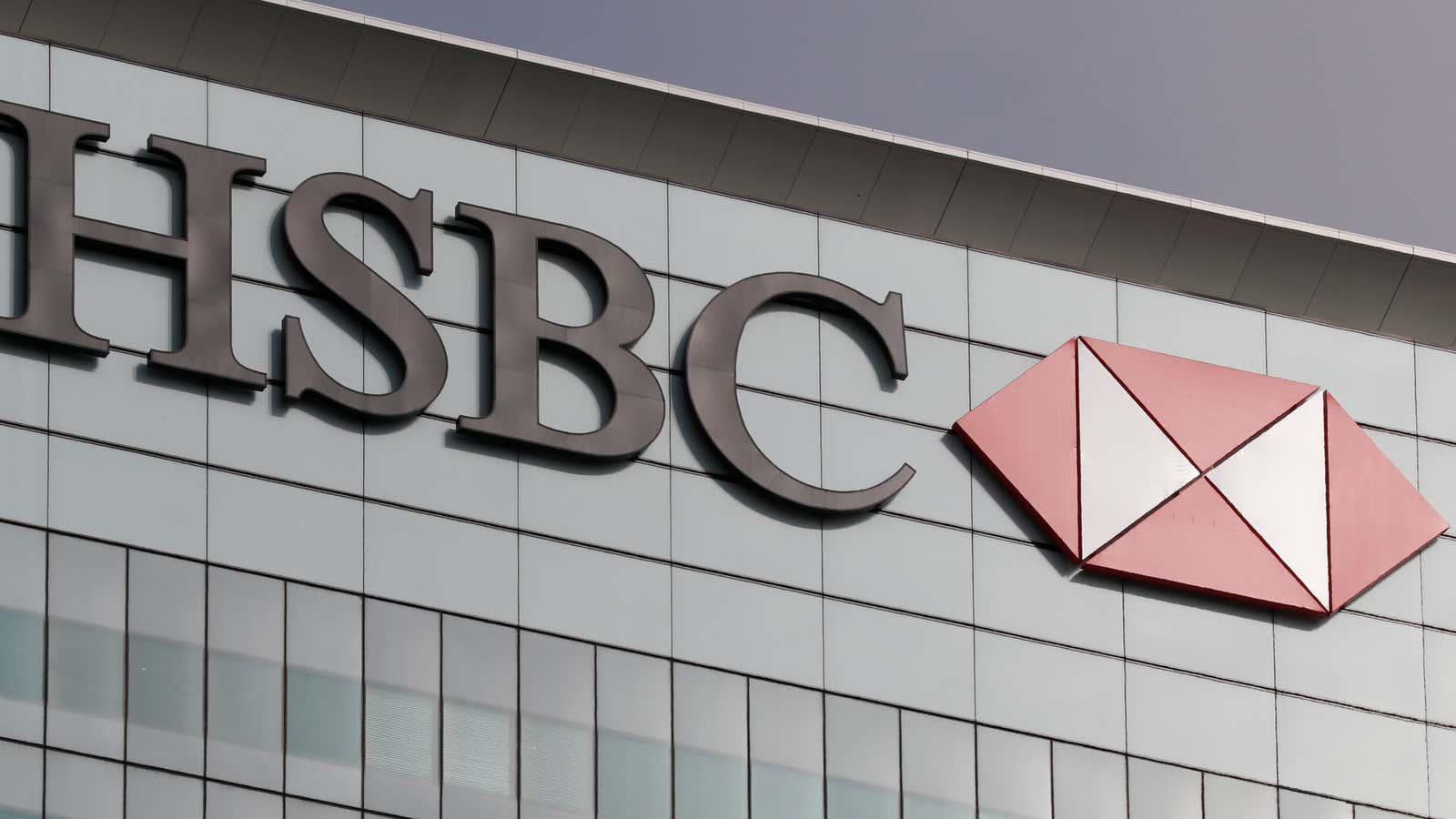Between 2010 and 2014, at least $20.8 billion was laundered out of Russia, funneled into banks in Moldova and Latvia, and spread from there into 96 countries across the world. The Organized Crime and Corruption Reporting Project (OCCRP), which unearthed the scheme in 2014, dubbed it “the Russian Laundromat.”
Its main beneficiaries haven’t been named (though former Moldovan MP Vyacheslav Platon has been arrested for allegedly orchestrating it). But now The Guardian and other outlets are reporting that a lot—an awful lot—of international banks ended up as hosts for the money, despite their anti-money-laundering controls. The data, the Guardian says, come from evidence collected in a police investigation and provided by the OCCRP.
Under the scheme, 21 shell companies with hidden owners were set up in the UK, Cyprus and New Zealand. One company would then create a fake “loan” to another company, and a Russian firm would guarantee the loan. The shell companies would then default on the fake “loan,” and a corrupt Moldovan judge would “authenticate” the fake debt, ordering the Russian debtor to make the repayment into a Moldovan court bank account. The Russian debtor could then get the money out of the country and launder it through a host of banks throughout the world—usually going first via Trasta Komercbanka in Latvia.
(There’s a nice graphic explaining this from OCCRP.)
This cash then ended up in accounts at 732 banks, including giants like HSBC, Bank of China, Credit Suisse, Deutsche Bank, Citibank, and Royal Bank of Scotland. Transparency International’s Robert Barrington described the 17 British banks that received money as part of the scheme as, “at best lax and at worst complicit.” Britain’s HSBC was one of the worst alleged culprits, receiving $545 million.
The Guardian contacted the 17 UK banks for comment. None challenged the allegations, it says; all issued statements with some variation on the theme that they had money-laundering controls in place, cooperated closely with law enforcement, and could not discuss individual cases.
Here are the top 50 banks into which money from the scheme was deposited.
Editor’s note: A previous version of this story incorrectly identified the Seb Group bank involved in the matter as Seb Bank in Latvia. In fact, it is the Seb Bank in Estonia that was named in the OCCRP list.
